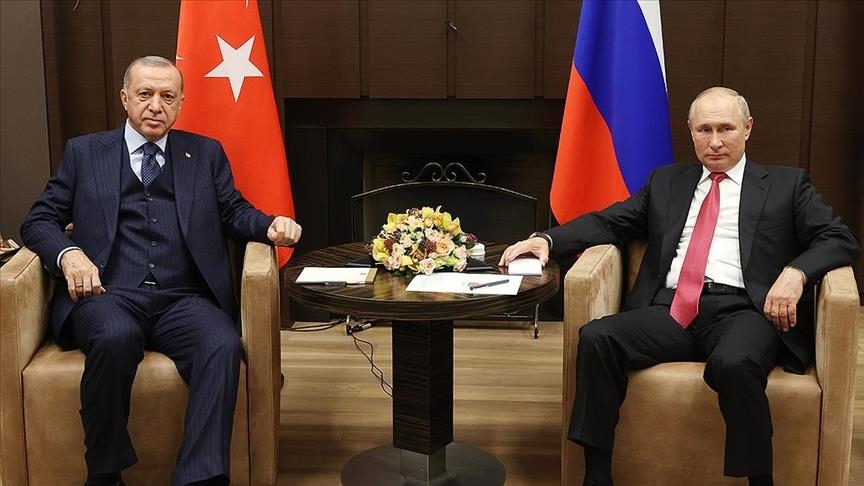Turkish, Russian leaders discuss war in Ukraine, regional issues
There is need for steps to minimize negative effects of war in Ukraine, reestablish groundwork for peace, says Turkish President Erdogan

ANKARA
In a phone call with his Russian counterpart, Turkiye's president on Monday reiterated Ankara's willingness to keep doing its part for peace in Ukraine.
Turkiye is ready to play a role in a possible observation mechanism after first meeting with representatives of Russia, Ukraine, and UN in Istanbul, Recep Tayyip Erdogan told Vladimir Putin, according to a statement from Turkiye’s Communications Directorate.
Erdogan also said there is a need for steps to minimize the negative effects of the war and reestablish a groundwork for peace.
More than 4,000 civilians have been killed and nearly 5,000 others injured in Ukraine since the war began on Feb. 24, according to UN estimates. The true toll is believed to be much higher.
Over 6.7 million people have fled to other countries, while more than 7.7 million have been internally displaced, according to the UN refugee agency.
Need for safe zone in Syria
Also touching on developments in the northern Syria border region, where attacks by the terror group YPG/PKK on civilians and neighboring Turkiye continue, the president said that a 30-kilometer (18.6-mile) safe zone stipulated under 2019 pacts with the US and Russia was never established.
The regions along the border liberated from terrorists must be made safe and secure, added Erdogan.
Turkiye borders Syria and Iraq to its south, and has worked to eliminate existing terrorist bases and prevent new ones there that would threaten its national security and the safety of locals across its borders.
YPG/PKK terrorists still threaten the atmosphere of safety with their terrorist attacks in northern Syria.
The YPG/PKK mostly carries out terror attacks in Manbij, Ayn Al-Arab, and the Tal Rifat district of Aleppo. The terror group even uses these regions as bases for its attacks.
Since 2016, Ankara has launched a trio of successful anti-terror operations across its border in northern Syria to prevent the formation of a terror corridor and enable the peaceful settlement of residents: Euphrates Shield (2016), Olive Branch (2018), and Peace Spring (2019).
In its more than 35-year terror campaign against Turkiye, the PKK – listed as a terrorist organization by Turkiye, the US, and EU – has been responsible for the deaths of over 40,000 people, including women, children, and infants. The YPG is the PKK’s Syrian offshoot.









